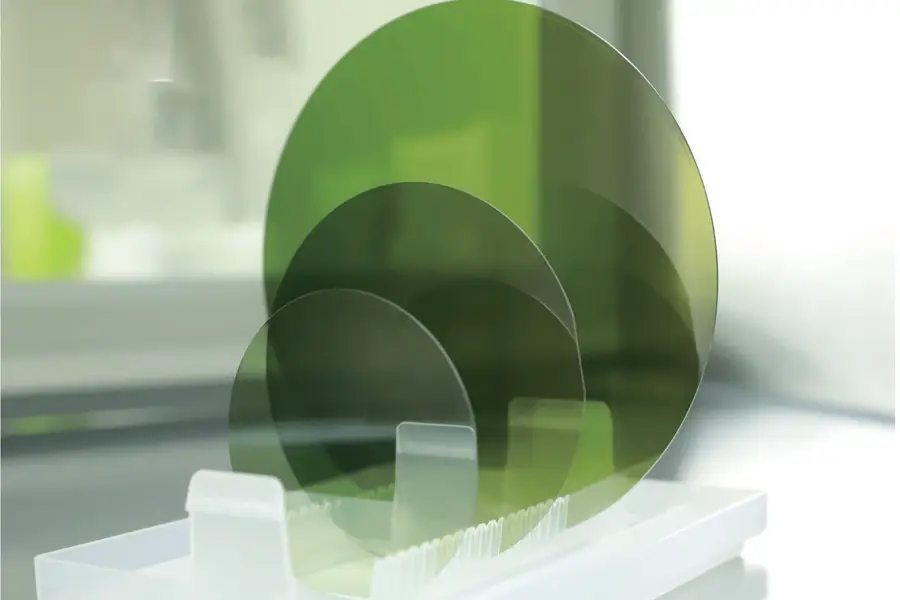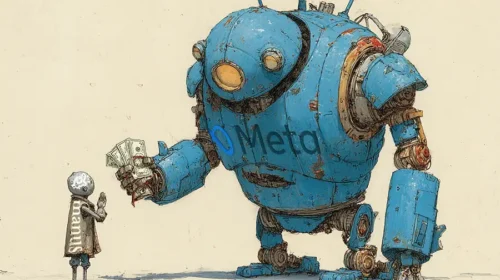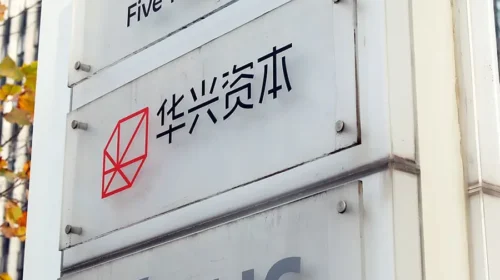Is Epiworld banking on state support in a shifting wafer market?

Under pressure from falling prices, the heavily subsidized maker of advanced wafers for automotive chips is seeking an IPO boost from investors
Key Takeaways:
- The company’s revenue fell 14.4% last year but its net profit rose 36%
- Nearly 68% of Epiworld’s profit came from government subsidies
By Lee Shih Ta
The global boom in electric cars and solar panels is being driven by high-tech chips that can operate under high temperature and pressure conditions.
And the makers of advanced microchip wafers are also feeling the heat as they battle it out for market share and investor cash.
A leading Chinese wafer foundry, Epiworld International Co. Ltd., has filed to list its shares on the Hong Kong Stock Exchange, looking to invest the proceeds in technical knowhow and productive capacity as it seeks to fend off competitors and bolster its global business.
The company is following in the footsteps ofHong Kong-listed InnoScience (2577.HK)and IPO applicant Guangdong Tianyu Semiconductor in seeking a funding boost from the equity market, as the industry battles mounting pressure from consolidation and oversupply.
Third-generation semiconductors used in electric cars, consumer electronics, industrial settings and aerospace systems are based either on gallium nitride (GaN) or silicon carbide (SiC) wafers, which offer higher power capacity and resilience than silicon alone. Tesla (TSLA.US) blazed a trail by using silicon carbide in the inverters for its Model 3 sedans, and now more than70% of silicon carbide demand comes from the new energy vehicle industry.
Epiworld was founded in 2011 by a leading scientist in the field of silicon carbide science, Zhao Jianhui, who was honored for his work by the Institute of Electrical and Electronic Engineers (IEEE) in the United States.
The Chinese company has become the world’s biggest foundry for silicon carbide wafers by annual sales, with a market share of 31.6% in 2024, according to data from China Insights Consultancy cited in the IPO application. The report also described Epiworld as the first company to mass-produce the more advanced 8-inch SiC epitaxial wafers.
The company enjoyed explosive growth until last year. It sold 85,400 SiC wafers in 2022, rising to 200,600 the following year and dipping again to 164,400 in 2024, according to its earnings reports. More than 95% of the sales came from 6-inch SiC wafers, with 8-inch wafers making up the rest.
Tianyu Semiconductor, as we reported a few months ago, is also a SiC specialist seeking a Hong Kong IPO. The company sold 132,000 SiC epitaxial wafers in 2023, 68,600 fewer than Epiworld. In the 8-inch segment, Tianyu sold 15 units compared with Epiworld’s 285 that year. Epiworld boosted its 8-inch sales to 7,466 units last year.
As for earnings, Epiworld’s revenues came in at 441 million yuan ($60.21 million) in 2022 and surged to 1.14 billion yuan in 2023, before falling 14.8% to 974 million yuan last year.
The drop was blamed on falling prices of SiC epitaxial wafers, after production capacity in the industry surged over several years, creating a serious supply glut in 2024. The price of 6-inch SiC substrate fell sharply, weighing on the price of epitaxial wafers.
The unit price of 6-inch SiC epitaxial wafers dropped from 11,400 yuan to 9,800 yuan between 2020 and 2023, falling another 25.5% to 7,300 yuan in 2024. With tumbling prices, the company’s gross margin sank from 44.7% in 2022 to 34.1% in 2024.
Drop in consignment business
Revenue from consignment contracts, in which wafers are manufactured using a customer’s raw materials, was particularly hard hit. Consignment orders only brought in 121 million yuan in 2024, a year-on-year drop of nearly 59%, taking the share of total turnover from 35.5% in 2022 to 12.4% last year.
Production on behalf of third parties is a declining model, as the global SiC market shifts to an integrated solution in which multinational manufacturers such as Wolfspeed (WOLF.US) and Infineon (IFX.DE) operate end-to-end production. At the same time, leading Chinese companies such as BYD (1211.HK; 002594.SZ) and Sanan Optoelectronics(600703.SH) have begun to build their own epitaxial wafer facilities, taking business away from independent wafer makers.
The escalating trade war as the United States unleashes a barrage of tariffs is also casting a shadow, as Epiworld is heavily dependent on overseas customers, who accounted for 766 million yuan of revenue last year, nearly 79% of the total turnover. Potential risks to its business highlighted in the prospectus include geopolitical tensions, international trade policies, international export controls and economic sanctions.
Heavily subsidized
Despite falling revenue and gross margin, the company still managed to increase its net profit last year, which grew 36% to 166 million yuan, mostly due to increased government subsidies.
Building a thriving industry in advanced microchips is one of China’s strategic priorities, seen as key to leapfrogging foreign peers. To achieve that end, state support has been extended at several levels, with Epiworld alone securing 13.51 million yuan, 47.35 million yuan and 112 million yuan over the past three years. In 2024, government subsidies were equivalent to 67.5% of its net profit.
Epiworld has completed multiple financing rounds since its inception, with backers such as Huawei-owned Hubble Technology, China Resources Microelectronics (688396.SH), Xincheng Zhongchuang, Xiamen Hi-Tech Investment and Xiamen Torch Capital. Last December it raised 1 billion yuan with the help of the Xiamen State-owned Asset Supervision and Administration Commission, securing a valuation of 26 billion yuan.
The company has grown into a global leader in SiC epitaxial wafers, but now faces industry consolidation, falling prices and the risk of increasingly polarized global trade. Still, it can count on state support as China invests in building its own microchip ecosystem. Shares in InnoScience, a Hong Kong-listed industry peer, have surged as much as 110% since its IPO and are still trading more than 30% above the listing price.
With relatively few listed Chinese companies in this space, Epiworld could still get a warm reception from investors.
To subscribe to Bamboo Works weekly free newsletter, click here




